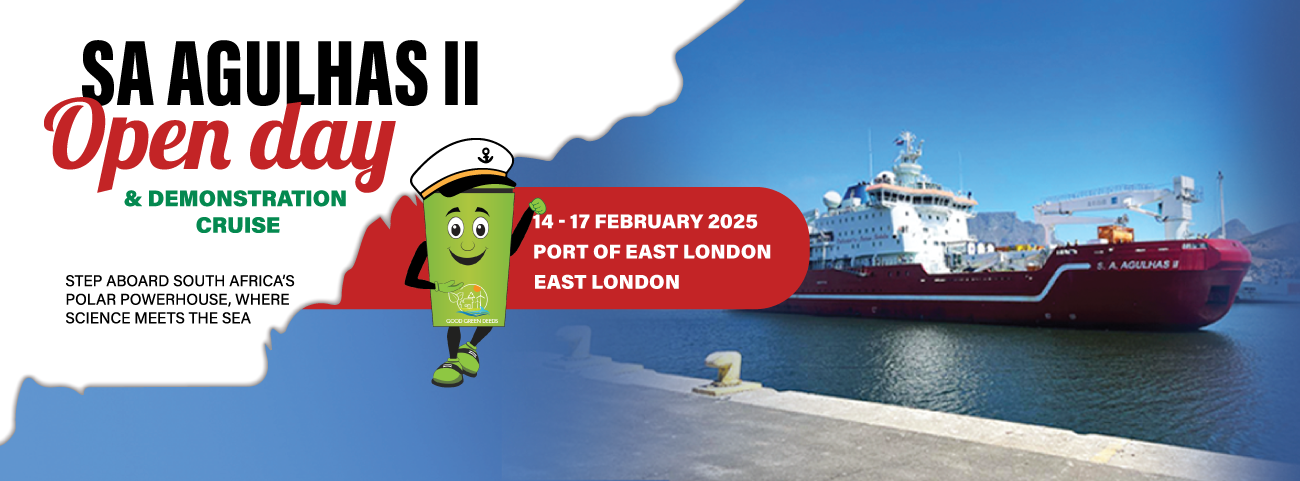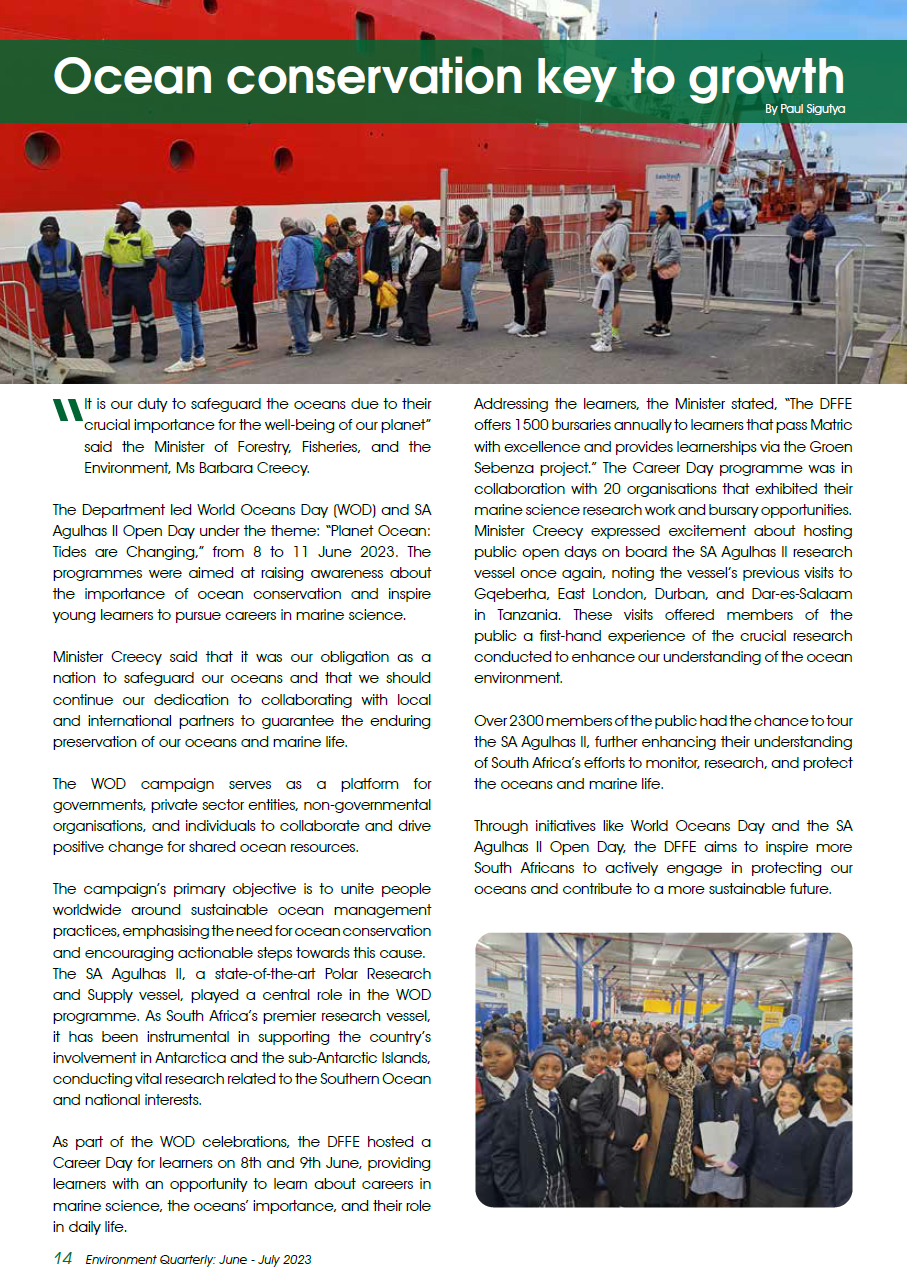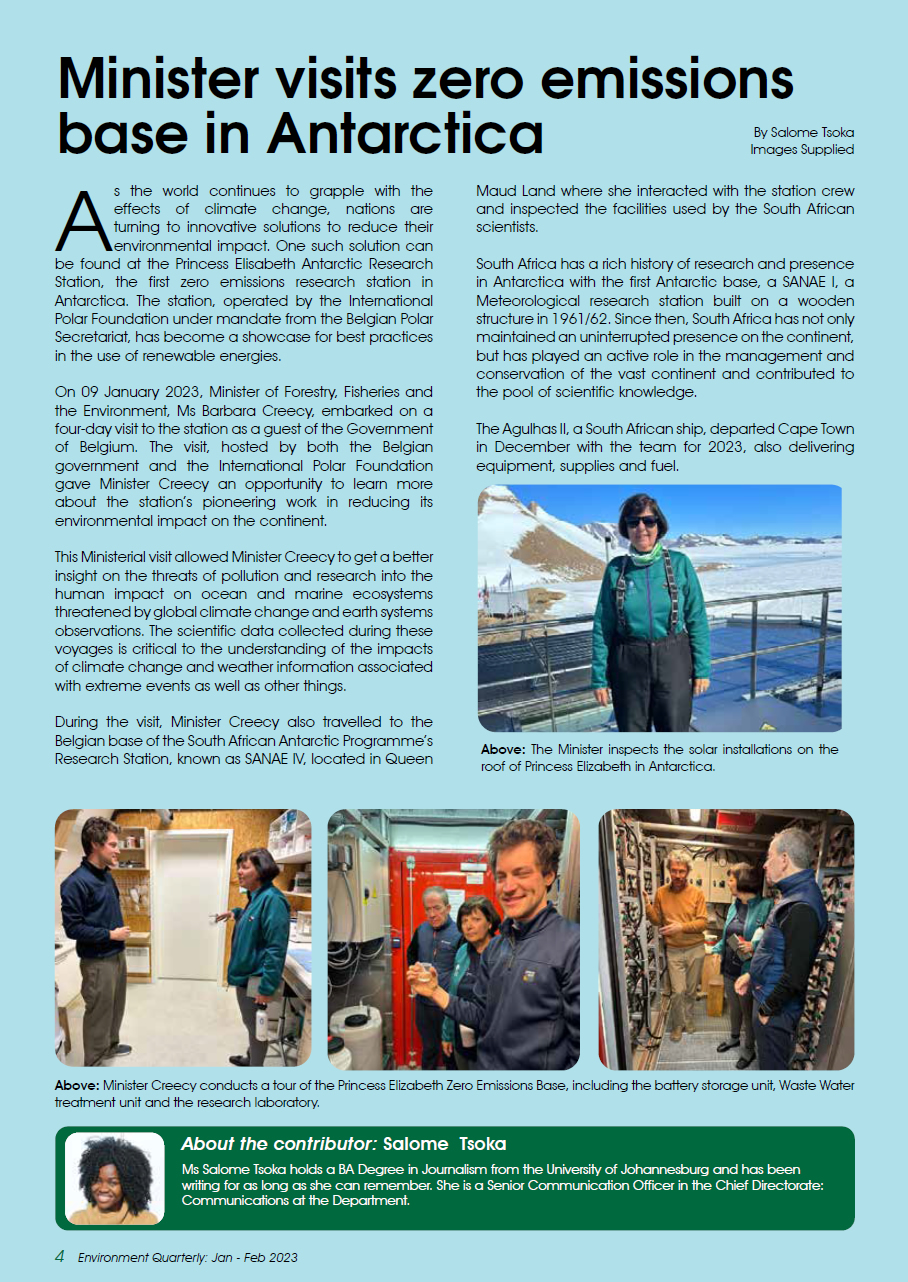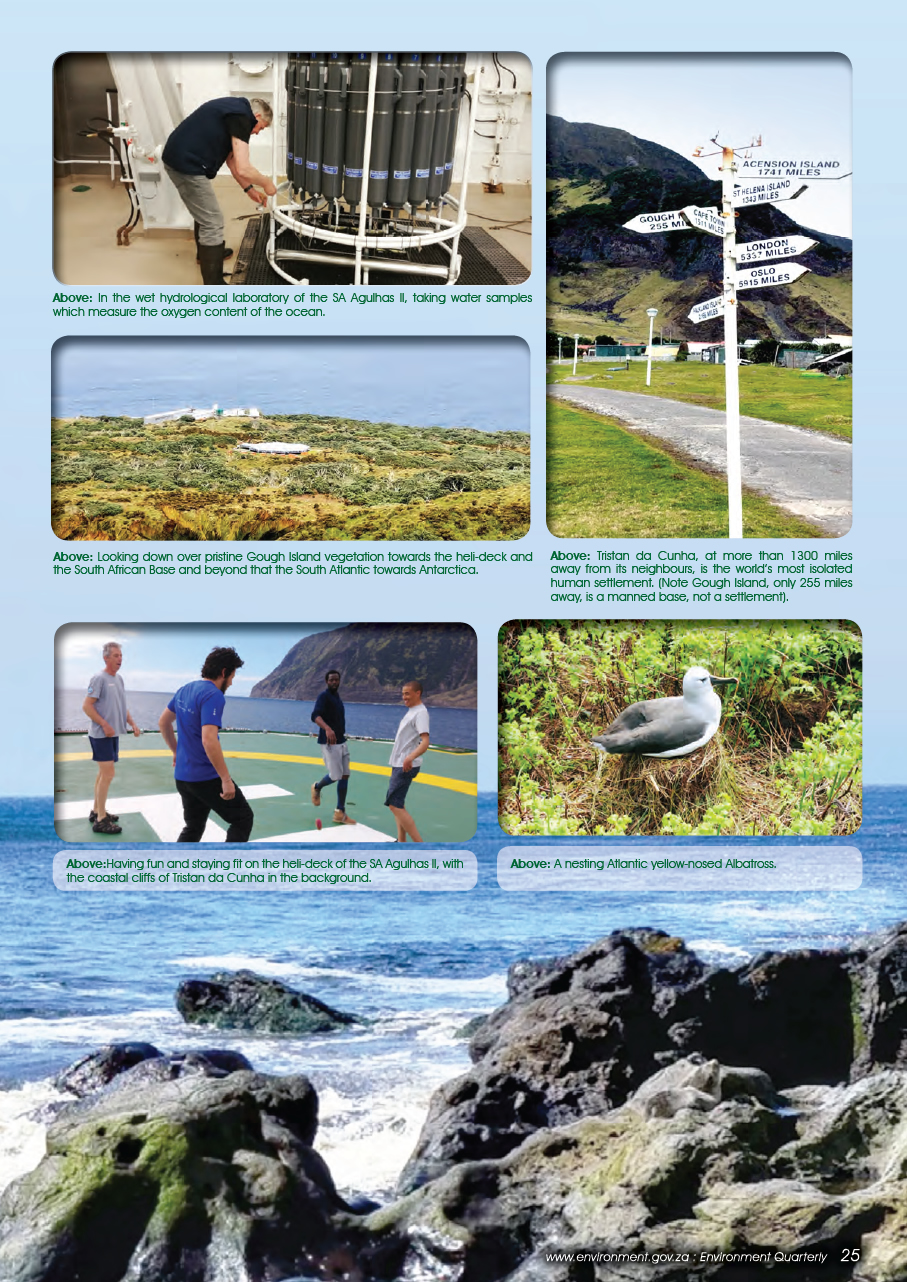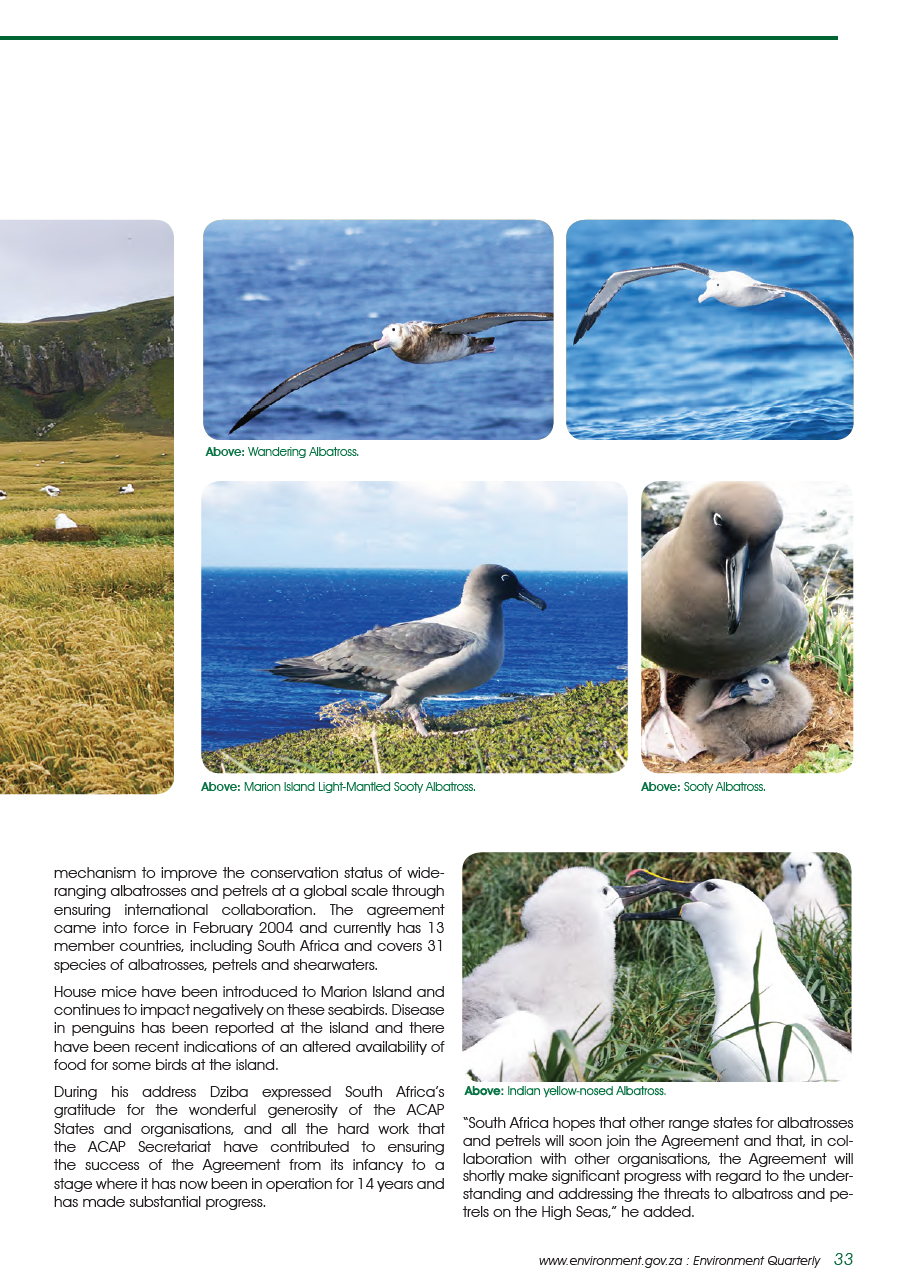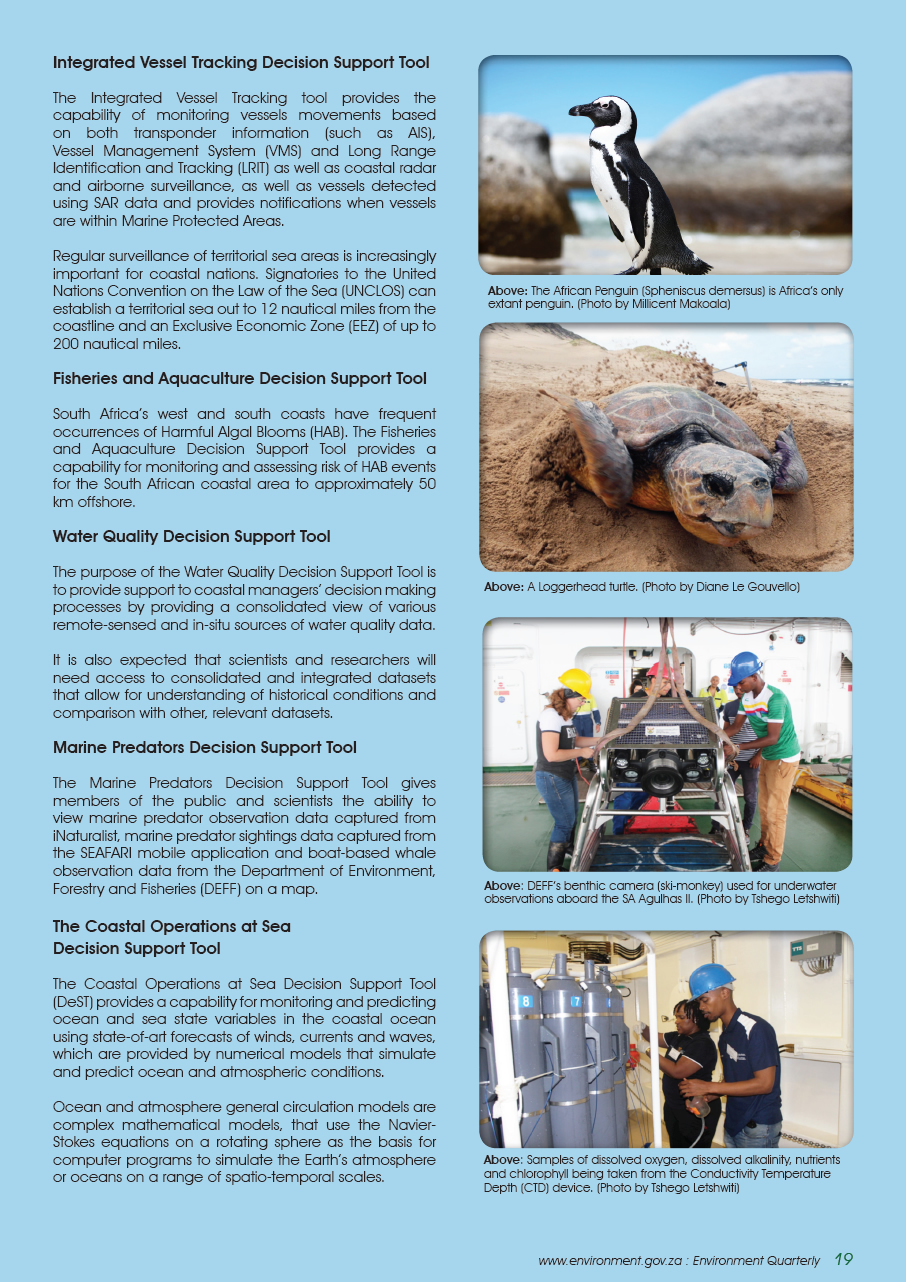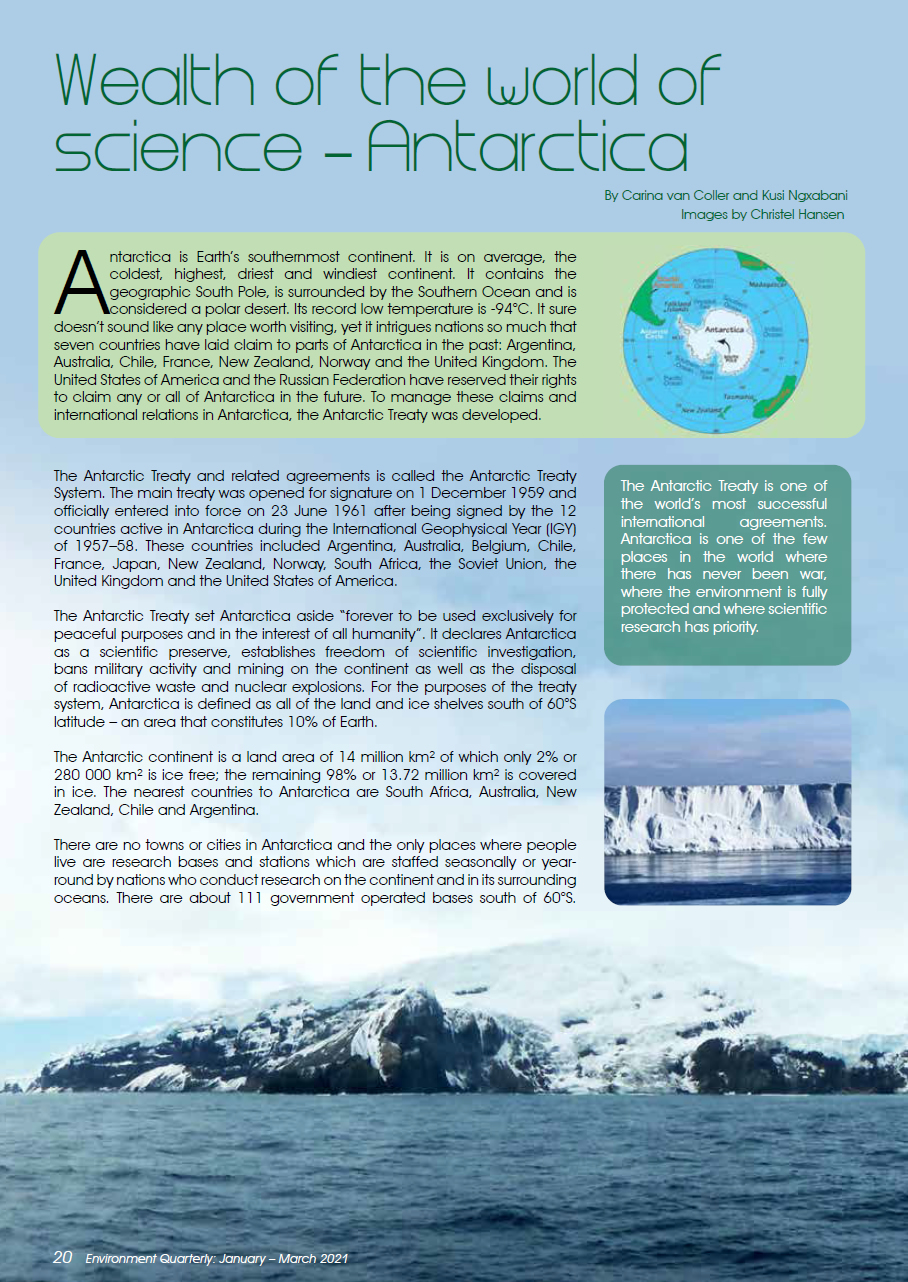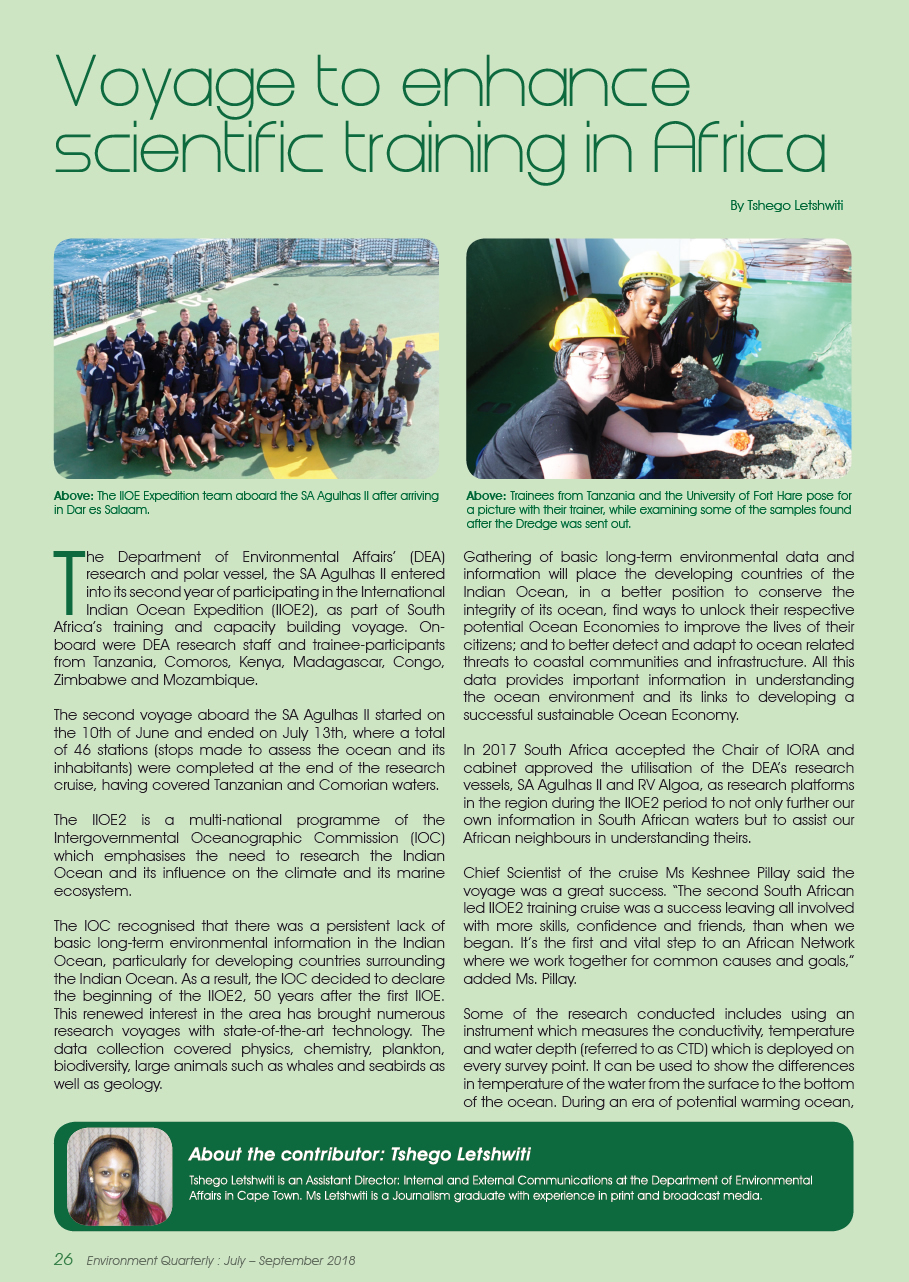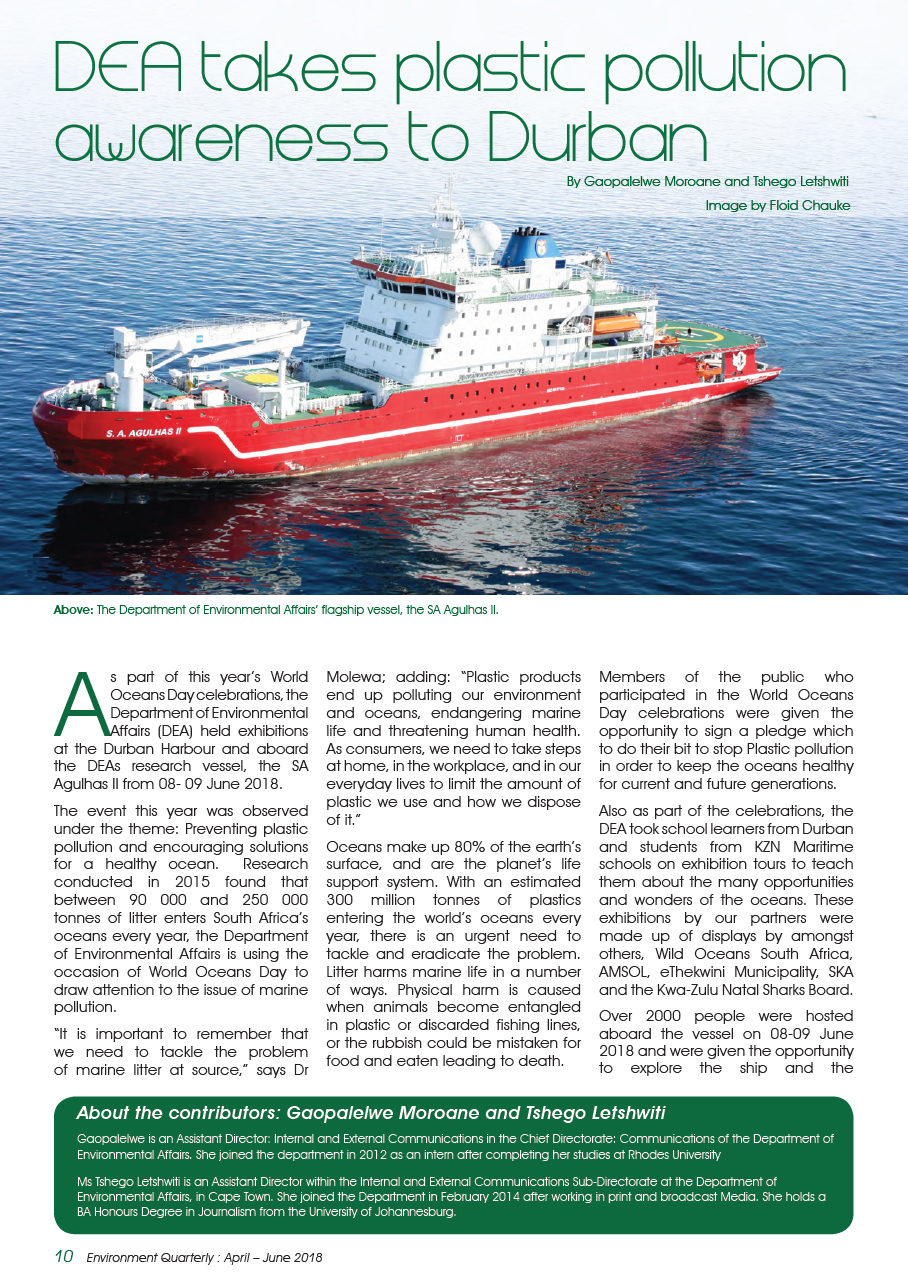Port of East London | 14 - 17 February 2025
The SA Agulhas II is a state-of-the-art research vessel designed to operate in polar conditions. Commissioned in 2012, it supports South Africa’s scientific missions in Antarctica and the Southern Ocean while also serving as a training platform for cadets pursuing careers in marine engineering and navigation. Equipped with advanced instrumentation and onboard laboratories, the vessel enables cutting-edge research in oceanography, climate science, and biodiversity, contributing significantly to both national and global environmental goals.
Previous open days for the SA Agulhas II have been hosted in major coastal cities such as Cape Town, Durban, Port Elizabeth, Comoros and Dar es Salaam. These events have consistently drawn thousands of visitors, including learners, educators, and key stakeholders. Each open day offered an invaluable opportunity to showcase the vessel’s capabilities, promote marine science, and inspire public interest in environmental stewardship. It is essential for the general public to understand how the SA Agulhas II contributes to research and conservation efforts. Fostering awareness of the vessel’s missions encourages collective responsibility for environmental stewardship and highlights the DFFE’s role in safeguarding SA’s marine ecosystems.
The SA Agulhas II Open Day is an essential platform for the DFFE to promote the vessel’s contributions to polar research, ocean conservation, and scientific innovation.
The event aligns with several strategic objectives by involving members of the Portfolio Committee, learners, the media, and the general public as it offers dynamic, hands-on experience for learners and members of the public to meet the following objectives: educate and inspire high school learners about marine science, ocean conservation, and the vital work of the DFFE; promote careers in environmental fields and showcase diverse pathways within marine sciences and; highlight unique capabilities of the SA Agulhas II research vessel and its role in critical research.
For the DFFE, this initiative showcases the significance of the SA Agulhas II in advancing South Africa’s research agenda and upholding commitments to international environmental protocols. The vessel’s advanced capabilities in polar research, instrumentation, and supply missions position it as a vital asset for addressing climate change, biodiversity conservation, and sustainable marine resource management.
Click on each of these pictures below to download content.
All aboard the SA Agulhas: ocean conservation key to growth
Over 2300 members of the public tour the SA Agulhas II, further enhancing their understanding of South Africa's efforts to monitor, research, and protect the oceans and marine life. DFFE also hosted a career day, providing learners with an opportunity to learn about careers in marine science, the oceans' importance, and their role in daily life.
Minister Creecy embarked on a four-day tour the zero emissions base in Antarctica
Princess Elisabeth Antarctic Research Station is the first zero emissions research station in Antarctica, operated by International Polar Foundation under mandate of Belgian Polar Secretariat. The visit gave Minister Creecy opportunity to learn about the station's work in reducing its environmental impact on the continent.
SA's research team on Gough Island
very year, a small team of scientists and technicians are placed on Gough Island for a period of 13 months to man the weather station there and to undertake biological research, mainly on seabirds and marine mammals. They are mostly South African, but also include international researchers, as Gough Island is British territory.
SA home to large populations of albatrosses
South Africa hosts large and important populations of albatrosses and petrels at its Prince Edward Islands, which are located in the southwest Indian Ocean. These islands hold, for example, about half the global population of wandering albatrosses and a quarter of Indian yellow-nosed albatrosses.
SA supports innovation in oceans
As the challenges to the ocean continue to grow, so does the need for novel solutions and the people driving them. South Africa hasn't been left behind in the innovation of tools to manage and protect South Africa's coastlines.
Wealth of the world of science: Antarctica
The Antarctic Treaty is one of the world's most successful international agreements. Antarctica is one of the few places in the world where there has never been war, where the environment is fully protected and where scientific research has priority
Voyage to enhance scientific training in Africa
The DFFE's research and polar vessel, the SA Agulhas II entered into its second year of participating in the International Indian Ocean Expedition (IIOE2), as part of South Africa's training and capacity building voyage.
DEA takes plastic pollution awareness to Durban
Oceans make up 80% of the earth's surface, and are the planet's life support system. With an estimated 300 million tonnes of plastics entering the world's oceans every year, there is an urgent need to tackle and eradicate the problem.


